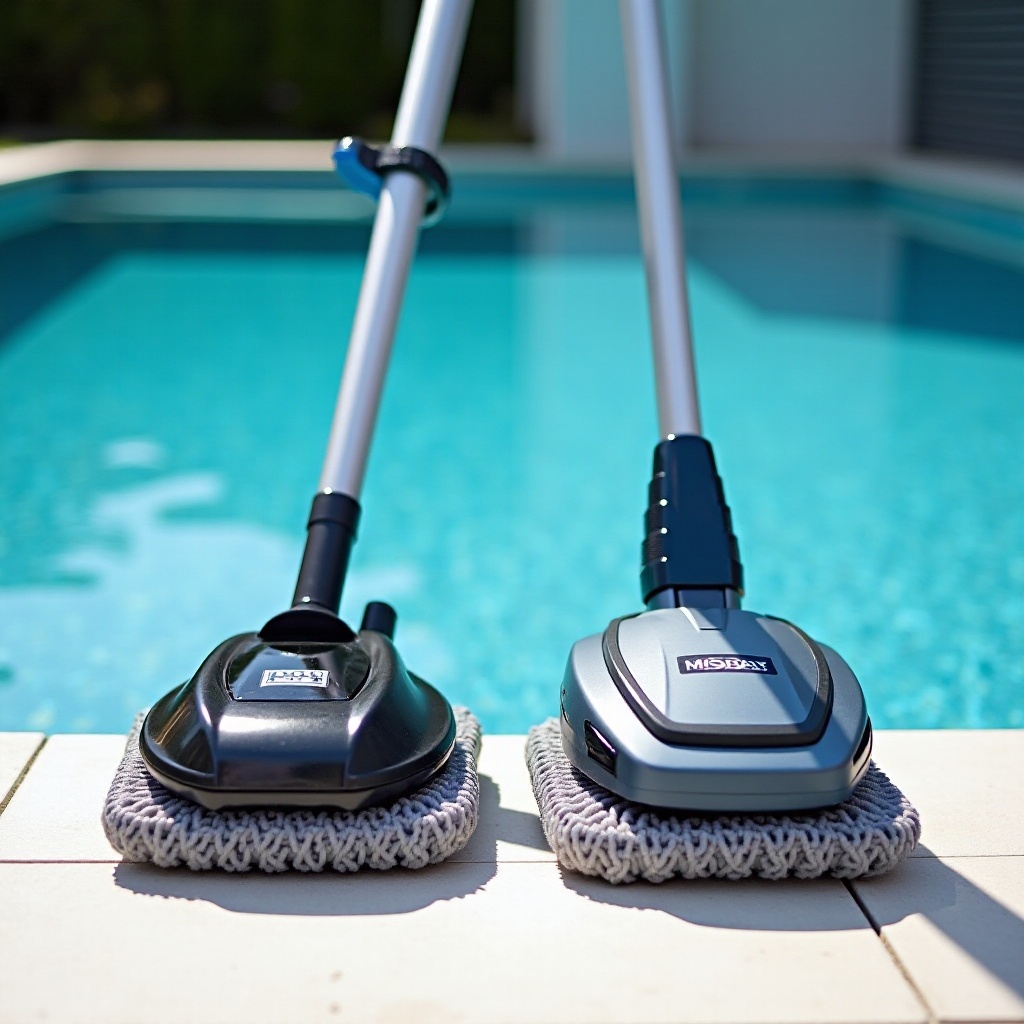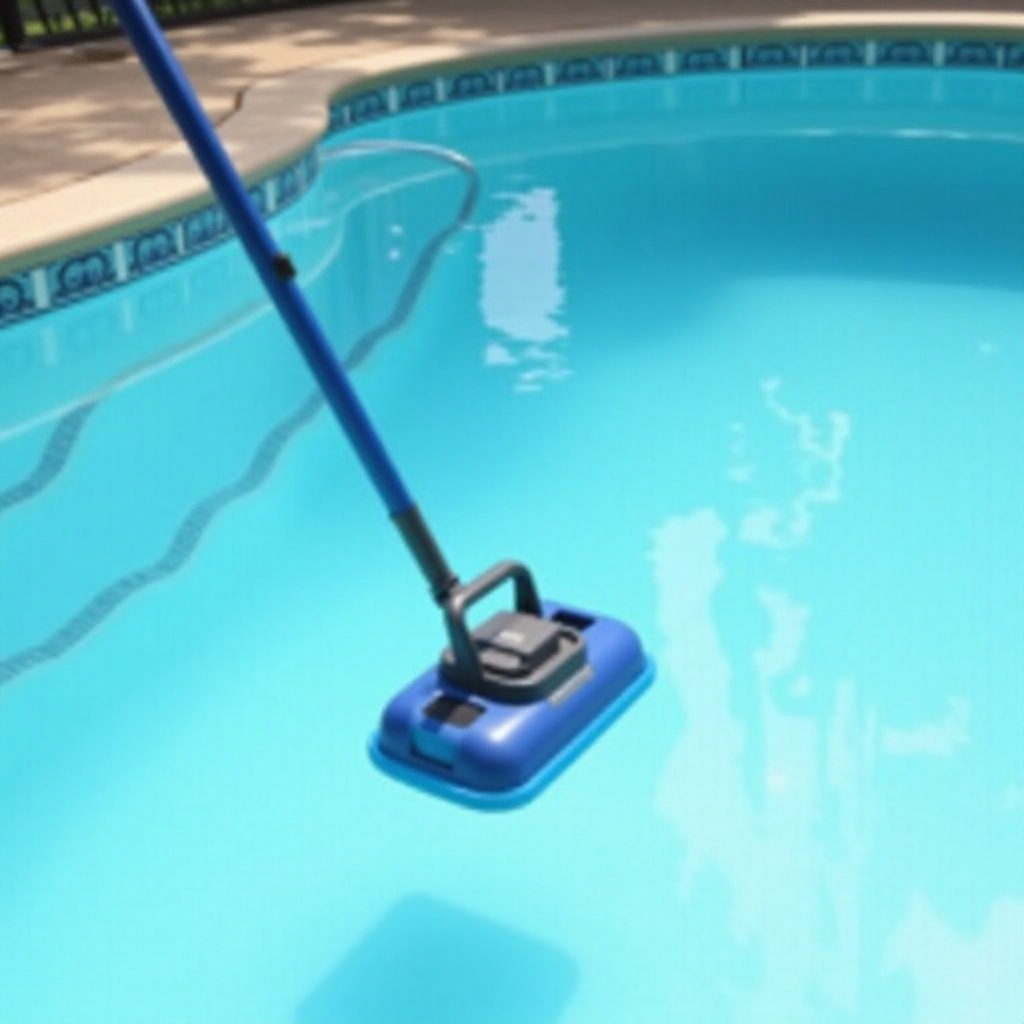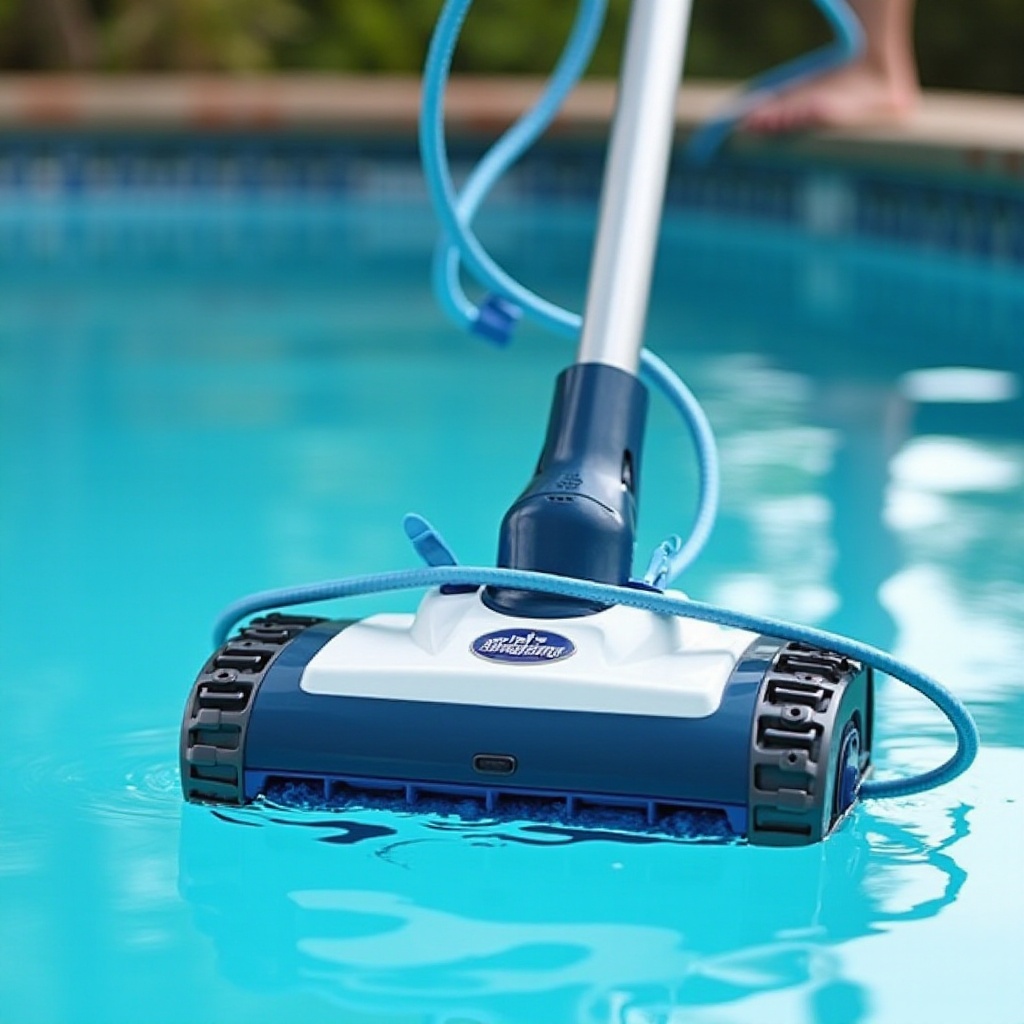Introduction
Maintaining a clean pool can be a hassle without the right equipment. Whether you are a residential pool owner or operate a commercial pool, having a reliable pool vacuum is crucial. This brings us to the big question: Should you choose a corded or a cordless pool vacuum? Each type offers its unique advantages and disadvantages, making it essential to understand their key differences. This blog will guide you through everything you need to know about corded and cordless pool vacuums, helping you make an informed decision.

Understanding Corded Pool Vacuums
Corded pool vacuums are traditional and have been around for a long time. They need to be plugged into a power source, which means they offer uninterrupted operation as long as the power is on. These vacuums usually offer powerful suction, making them ideal for larger pools or those with significant debris. Corded models come with long cables that connect to a power outlet, providing a steady stream of power to the vacuum.
These vacuums operate through an electric motor that drives the suction mechanism, making them effective in picking up dirt, leaves, and algae. They often come with various attachments for different cleaning needs, such as brushes and scrubbers, making them versatile for thorough cleaning.

Benefits of Corded Pool Vacuums
Corded pool vacuums have many advantages that make them a preferred choice for many pool owners:
- Consistent Power: With a constant power supply, corded vacuums deliver steady and reliable performance without worrying about battery life.
- Strong Suction: These vacuums typically have more robust motors, providing higher suction power, which is effective for deep cleaning.
- Durability: Generally, corded models are built to last and can handle vigorous cleaning tasks over time.
- Versatility: They usually include various attachments that offer enhanced cleaning capabilities for different surfaces and types of debris.
Drawbacks of Corded Pool Vacuums
Despite their benefits, corded pool vacuums come with a few drawbacks:
- Limited Mobility: The length of the cable can restrict movement, making it challenging to reach every corner of the pool.
- Setup Complexity: Setting up can be cumbersome due to the need for a power source and managing the cable.
- Safety Concerns: The presence of cables around water raises safety concerns, as tangled cords can pose a risk of tripping, and electrical connections must be managed carefully.

Understanding Cordless Pool Vacuums
Cordless pool vacuums are the modern counterparts offering enhanced convenience. They operate on rechargeable batteries, meaning there is no need for a constant power source, providing greater freedom of movement. Cordless vacuums are designed to be lightweight and easy to maneuver, making them suitable for quick clean-ups and smaller to medium-sized pools.
These vacuums are user-friendly, often incorporating intuitive controls and design. They are also typically quieter compared to corded models. Despite their modern design and convenience, cordless pool vacuums also have a set of limitations to consider.
Benefits of Cordless Pool Vacuums
Cordless pool vacuums offer numerous advantages, including:
- Mobility: The absence of a cord allows for unrestricted movement, making it easier to maneuver around the pool.
- Ease of Use: Quick setup and simple operation make them very user-friendly.
- Safety: Without cables, the risks associated with cords around water are eliminated, making cordless vacuums safer.
- Portability: Lightweight design and battery operation make them portable and easy to use anywhere.
Drawbacks of Cordless Pool Vacuums
While convenient, cordless pool vacuums have their own limitations:
- Battery Life: Limited battery life can be an issue, especially for larger pools requiring prolonged cleaning sessions.
- Less Power: They may not offer suction as strong as corded models, making them less effective for heavy-duty cleaning.
- Frequent Recharging: The need for regular recharging can disrupt the cleaning process and can be inconvenient if the vacuum runs out of battery midway.
Comparison Based on Specific Criteria
When choosing between corded and cordless pool vacuums, consider the following criteria:
Suction Power
Corded pool vacuums typically excel in suction power due to their continuous power supply and stronger motors, making them ideal for intensive cleaning. Cordless vacuums, while effective for light to medium tasks, may lag in more demanding cleaning scenarios.
Mobility and Convenience
Cordless vacuums win in terms of mobility and convenience. They offer unparalleled freedom of movement, making it easy to navigate around the entire pool without worrying about cable length or entanglement.
Maintenance and Durability
Both types require regular maintenance; however, corded vacuums usually have a longer lifespan due to their sturdy build. Cordless vacuums may need more frequent battery replacements and can be less durable over time.
Cost
Cost is an essential factor; corded vacuums might be higher upfront due to their powerful motors and durability, but they can be more economical in the long run. Cordless vacuums are generally less expensive initially but consider the long-term cost of battery replacements.
User Case Scenarios
Best Usage for Corded Vacuums
Corded vacuums are ideal for larger, commercial pools requiring continuous operation and powerful suction to handle significant debris. They’re also suited for pool owners who prioritize thorough cleaning over convenience.
Best Usage for Cordless Vacuums
Cordless vacuums are best for residential pool owners who prioritize ease of use and convenience. These are perfect for smaller or medium-sized pools where mobility is a significant factor, and quick, light clean-ups are frequent.
Conclusion
Choosing between a corded and cordless pool vacuum ultimately depends on your specific needs, pool size, and cleaning preferences. While corded vacuums offer consistent power and deep cleaning capabilities, cordless vacuums provide exceptional convenience and safety. Evaluate the pros and cons of each type to make an informed decision that best suits your pool maintenance routine.
Frequently Asked Questions
What is the average lifespan of a cordless pool vacuum?
The average lifespan of a cordless pool vacuum ranges from 2 to 5 years, depending on the model, frequency of use, and maintenance routines.
How do I maintain my corded pool vacuum?
To maintain a corded pool vacuum, regularly check and clean filters, ensure the power cord is in good condition, and periodically inspect the motor and attachments for wear and tear.
Are there any safety concerns with using a corded pool vacuum?
Yes, safety concerns include the risk of electric shock, tripping over the cord, and ensuring waterproof connections to prevent any electrical hazards associated with cords in or near water.
